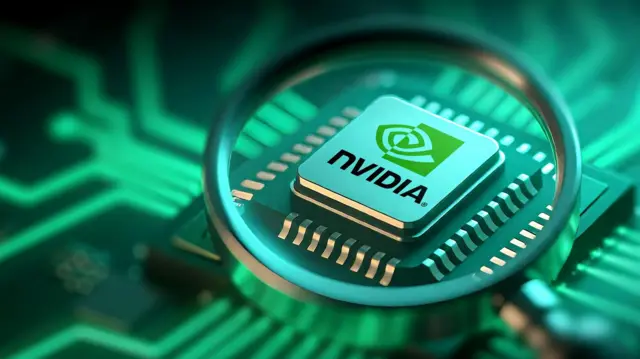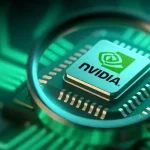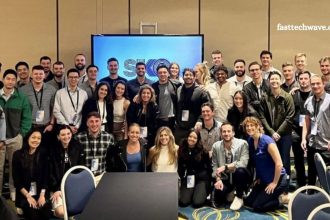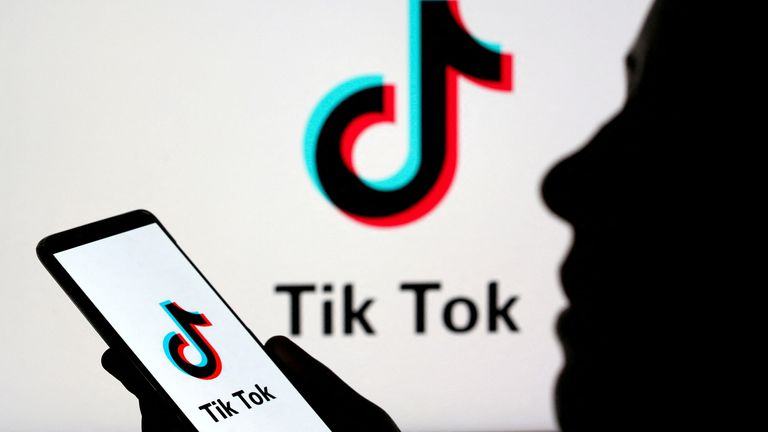The global technology landscape is witnessing a new chapter of tension between China and the United States, and this time the spotlight is on Nvidia. Once known primarily for graphics cards powering video games, Nvidia has transformed into one of the world’s most powerful companies at the center of artificial intelligence, data processing, and high-performance computing.
- Nvidia’s Rise to Global Tech Dominance
- China’s Accusations of Anti-Monopoly Violations
- Why China is Targeting Nvidia Now
- Global Context: Antitrust Enforcement in Tech
- The Importance of AI Chips and Nvidia’s Monopoly Concerns
- China’s Domestic Push for Semiconductor Independence
- Potential Impacts on Nvidia’s Global Business
- Expert Perspectives on the Nvidia-China Clash
- The Bigger Picture: Geopolitics and Technology
- Possible Outcomes of the Case
- FAQs
- Why has China accused Nvidia of breaking anti-monopoly regulations?
- How does this relate to U.S.-China tensions?
- What impact could this have on Nvidia’s business?
- Is Nvidia a monopoly in the AI chip market?
- How will this affect China’s domestic semiconductor industry?
- Conclusion
But as its influence has grown, so too has the scrutiny from regulators. Recently, China accused Nvidia of breaking anti-monopoly regulations, adding fuel to an already complex geopolitical and economic rivalry between Beijing and Washington.
This accusation could reshape the competitive environment for chipmakers, alter supply chains, and challenge Nvidia’s dominance in artificial intelligence. It also reflects a broader struggle where governments across the world, from the United States to Europe and now China, are moving aggressively to regulate tech giants. To understand the gravity of China’s claim, one must examine not only the allegations themselves but also the history of antitrust enforcement, Nvidia’s meteoric rise, and the global battle for semiconductor supremacy.
Nvidia’s Rise to Global Tech Dominance
Founded in 1993 in California, Nvidia initially gained recognition for revolutionizing gaming graphics. Its GPUs (graphics processing units) transformed how computers handled visual performance, allowing video games and digital applications to achieve breathtaking realism. However, Nvidia’s biggest leap came when scientists and engineers realized that GPUs were not only good for graphics but also for parallel computing tasks, which form the backbone of artificial intelligence and machine learning.
By the mid-2010s, Nvidia had positioned itself at the core of AI development. Its chips became essential for training large-scale machine learning models, running data centers, and advancing deep learning research. Today, Nvidia is no longer just a gaming company—it is the heartbeat of AI innovation, powering everything from autonomous vehicles and robotics to cutting-edge medical research and national security projects.
As of 2025, Nvidia’s market value hovers above $2 trillion, making it one of the most valuable companies on the planet. With such dominance comes inevitable regulatory scrutiny, and the Chinese government’s accusations are part of a broader trend of questioning whether Nvidia’s influence has grown too unchecked.
China’s Accusations of Anti-Monopoly Violations
China’s State Administration for Market Regulation (SAMR), the primary regulator tasked with enforcing competition laws, has accused Nvidia of engaging in anti-competitive practices. According to Chinese authorities, Nvidia’s alleged misconduct includes:
- Limiting fair access to GPU technology for domestic companies.
- Using exclusive agreements that disadvantage Chinese competitors.
- Leveraging its dominance in AI and high-performance computing to control pricing.
- Creating barriers for new entrants into the semiconductor sector.
These claims fit into China’s ongoing efforts to ensure that foreign companies operating within its borders do not exploit market power at the expense of local innovation. Beijing has previously fined companies like Microsoft, Qualcomm, and Apple for alleged monopolistic behavior, and Nvidia’s case is seen as another move in this regulatory campaign.
Why China is Targeting Nvidia Now
The timing of the accusations is telling. On one hand, Nvidia’s AI chips are in unprecedented demand worldwide. On the other, the United States has imposed export restrictions on advanced semiconductors to China, citing national security concerns. These restrictions directly limit Nvidia’s ability to sell its most powerful chips, such as the A100 and H100, to Chinese companies.
By accusing Nvidia of violating anti-monopoly laws, China appears to be sending a strong message: if the U.S. blocks Chinese firms from accessing technology, Beijing will increase regulatory pressure on U.S. companies operating in its market. Some analysts believe the move is as much political as it is economic.
A Chinese industry analyst was quoted saying, “This is both a competition law issue and a geopolitical response. China is signaling that foreign tech giants must play by its rules if they want access to its massive consumer base.”
Global Context: Antitrust Enforcement in Tech
China is not alone in targeting Nvidia. Over the past decade, regulators worldwide have grown increasingly concerned about the outsized power of Big Tech. In the U.S., the Federal Trade Commission and the Department of Justice have investigated Nvidia, especially after its attempted $40 billion acquisition of ARM in 2020, which was eventually abandoned due to antitrust concerns.
In Europe, Nvidia’s dominance in AI chips has also raised alarms. The European Commission has tightened oversight on mergers and acquisitions in the semiconductor industry, fearing that fewer competitors could stifle innovation and increase costs for businesses and consumers.
Seen in this global context, China’s accusations are part of a broader pattern of governments asserting control over tech monopolies that influence economies, societies, and even national security.
The Importance of AI Chips and Nvidia’s Monopoly Concerns
AI chips are not just another line of products—they are the foundation of the modern economy. From ChatGPT-like applications and autonomous cars to advanced climate modeling and military defense, AI depends on the processing power that Nvidia dominates.
According to industry reports, Nvidia controls more than 80% of the global market for AI-focused GPUs. This kind of market share is rare in any industry and is comparable to oil companies dominating global supply chains in the early 20th century. Such dominance raises legitimate concerns: can innovation truly flourish if one company controls the majority of hardware essential to the digital future?
Economists often warn that monopolies lead to higher costs, slower innovation, and less competition. For China, which has ambitious goals of becoming a world leader in AI by 2030, Nvidia’s stranglehold poses a direct challenge to its national strategy.
China’s Domestic Push for Semiconductor Independence
China has poured billions of dollars into developing its semiconductor industry. Companies like Huawei’s HiSilicon, SMIC (Semiconductor Manufacturing International Corporation), and Biren Technology are all attempting to build alternatives to Nvidia’s GPUs.
Yet, despite these efforts, Chinese companies remain several years behind in terms of advanced chip design and production. Nvidia’s technology remains unrivaled for training large-scale AI models. By targeting Nvidia with regulatory action, China not only pressures the company but also creates breathing room for domestic players to catch up.
This is part of a broader initiative known as “Made in China 2025,” which aims to reduce dependence on foreign technology and build indigenous alternatives across critical sectors. Nvidia, as the undisputed leader in AI hardware, is a natural target within this strategy.
Potential Impacts on Nvidia’s Global Business
If China’s accusations lead to penalties, restrictions, or fines, Nvidia could face serious challenges in its second-largest market. China accounts for a significant share of Nvidia’s revenue—some estimates suggest as much as 20–25%. Losing or limiting access to such a market could disrupt its financial growth.
Moreover, heightened regulation could embolden other countries to pursue similar actions. If Europe or the United States interprets China’s accusations as evidence of anti-competitive practices, Nvidia could be hit with multiple regulatory battles across different jurisdictions.
At the same time, Nvidia’s global demand is so high that some analysts believe it may weather the storm. AI startups, universities, governments, and corporations around the world are scrambling to secure Nvidia GPUs, and shortages have become the norm. This demand could cushion the blow from regulatory pressures.
Expert Perspectives on the Nvidia-China Clash
Industry experts remain divided on the significance of China’s accusations. Some see it as primarily political, tied to broader U.S.-China tensions, while others view it as a legitimate regulatory intervention.
Dr. Mei Lin, a professor of international business law, explained, “China has long accused Western companies of abusing market power within its borders. Nvidia is not the first and will not be the last. However, the global semiconductor context makes this case particularly sensitive.”
Meanwhile, American tech policy analysts argue that this move highlights the risks of over-reliance on China as a market. “For too long, companies like Nvidia relied heavily on Chinese revenue streams without anticipating the regulatory risks. This is a wake-up call,” said one U.S.-based economist.
The Bigger Picture: Geopolitics and Technology
At its core, this is not just a legal battle over monopoly practices. It is part of a much larger story about the future of technology and global power. The United States and China are locked in an intensifying rivalry, with semiconductors at the center. Nvidia, as the most powerful AI chip company, finds itself caught in the crossfire.
For the U.S., ensuring Nvidia’s dominance is a matter of technological leadership. For China, curbing Nvidia’s influence is about national security and economic independence. The accusations of monopoly practices serve as a tool in this broader competition.
Possible Outcomes of the Case
Several scenarios could unfold in the coming months:
- Regulatory Penalties: China could impose fines or restrictions on Nvidia, potentially limiting its operations in the Chinese market.
- Negotiated Settlements: Nvidia may agree to certain conditions, such as sharing more technology with Chinese partners, to maintain access.
- Geopolitical Escalation: The case could fuel further tensions between Washington and Beijing, leading to additional restrictions on technology exports.
- Minimal Impact: Given Nvidia’s global demand, the company may absorb the regulatory hit without significant long-term damage.
Whatever the outcome, the case will set a precedent for how foreign tech giants operate within China’s regulatory framework.
FAQs
Why has China accused Nvidia of breaking anti-monopoly regulations?
China claims Nvidia engaged in practices that unfairly limit competition, such as exclusive agreements, restrictive pricing, and barriers for domestic companies in the semiconductor market.
How does this relate to U.S.-China tensions?
The accusations come amid U.S. restrictions on semiconductor exports to China. Beijing’s regulatory action is seen by many as both a competition law enforcement issue and a geopolitical response.
What impact could this have on Nvidia’s business?
China represents a large share of Nvidia’s revenue. If restrictions or fines are imposed, Nvidia may face financial and operational challenges, though global demand for its chips may offset some of the losses.
Is Nvidia a monopoly in the AI chip market?
While not legally classified as a monopoly globally, Nvidia controls more than 80% of the AI GPU market. Such dominance has raised concerns among regulators in China, Europe, and the United States.
How will this affect China’s domestic semiconductor industry?
China may use regulatory pressure on Nvidia to give its local companies more room to grow. This aligns with its broader push for technological independence under policies like “Made in China 2025.”
Conclusion
China’s accusations against Nvidia mark a defining moment in the intersection of technology, business, and geopolitics. At one level, it is a standard antitrust case against a dominant market player. At another, it is a symbolic move in the great power competition over who will control the future of artificial intelligence and semiconductors.
For Nvidia, the challenge will be balancing compliance with China’s demands while safeguarding its global position as the leader in AI hardware. For China, the case underscores its determination to break free from reliance on foreign technology and build domestic champions. And for the rest of the world, this showdown is a reminder that the struggle for technological dominance is no longer confined to laboratories and boardrooms—it is a central feature of international relations in the 21st century.










